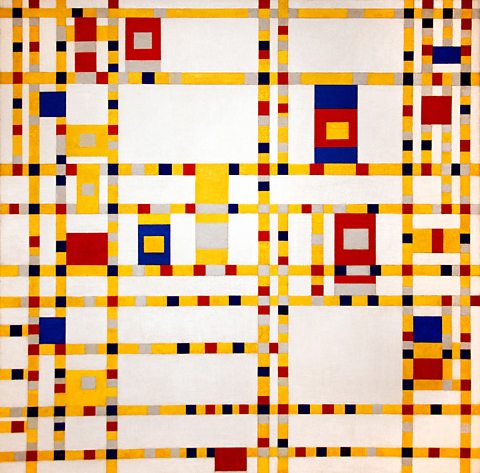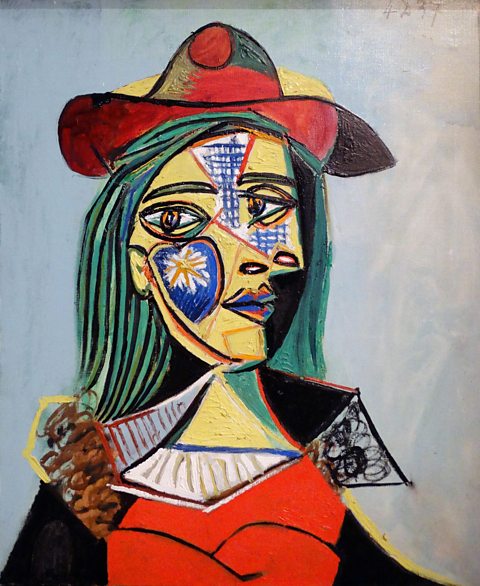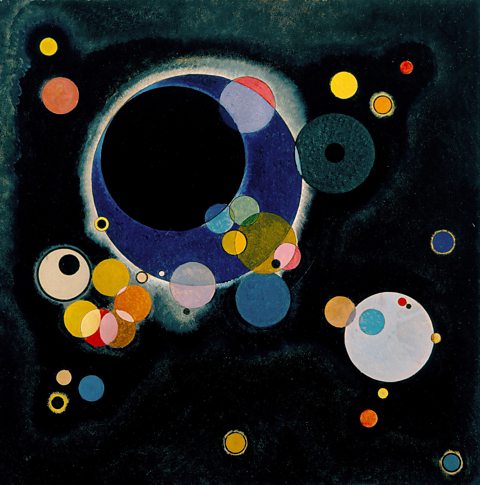Geometric shapes
Geometric shapes are mathematical shapes. They have straight lines, angles and points and curves
Geometric shapes include circles, squares, rectangles, triangles, parallelograms, hexagons etc.
Artists will sometimes use geometric shapes in their artwork to suggest balance and order or to highlight that something is man-made or artificial.

Piet MondrianÔÇÖs painting Broadway Boogie Woogie (1942-43), uses the geometric shapes of squares and rectangles to represent the busy grid of streets in Manhattan, New York.
The simple shapes have been laid out in a way that makes them look like a birds-eye view of roads, traffic and buildings. There are no organic, natural shapes. This completely geometric image suggests a modern, man-made city.


In Woman in Hat and Fur Collar, Pablo Picasso has deliberately added angles and points to the organic shapes that would normally be found in the human face.
Simplifying natural shapes and representing them in a geometric way such as this was common with the CubistA style of art from the early 20th Century which abandoned the idea of perspective and showed subjects from many different angles at the same time. movement of the early 20th Century.


This Kandinsky painting is entirely based on perfect circles but they are arranged in a seemingly random composition.
The individual elements may be geometric shapes, but the way they are used seems organic.
